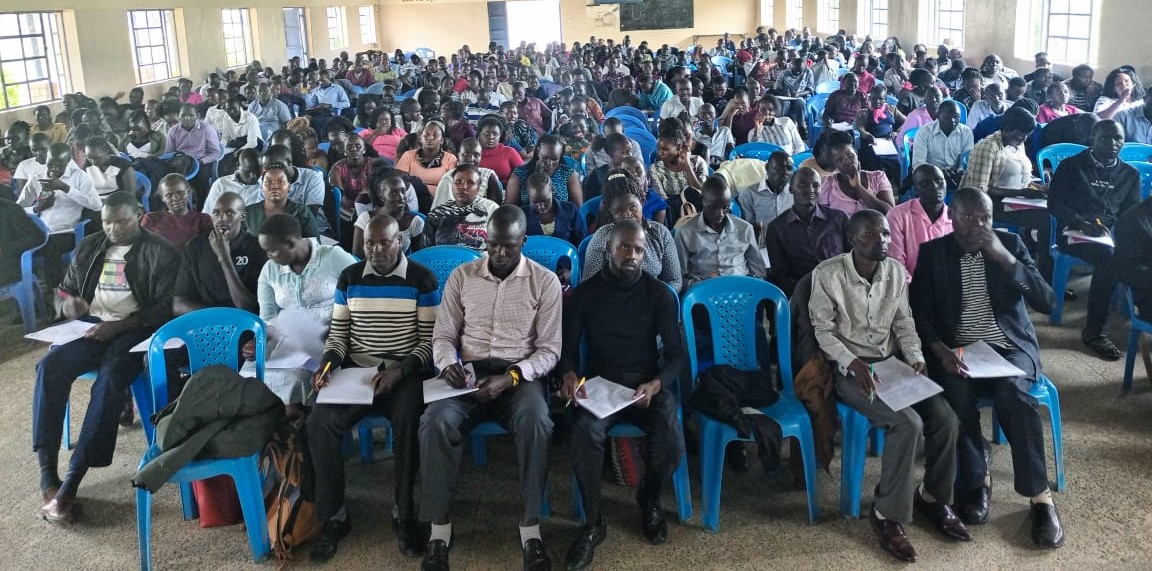It is surprising that despite the Teachers Service Commission (TSC) advertising and re-advertising for more than six months, it has not adequately addressed more than 1,001 administrative gaps in the teaching force.
The positions include Chief Principals, Principals, Deputy Principals, Headteachers, Deputy Headteachers, Senior Masters and Senior Teachers in various institutions.
This is contrasting to what happened in the past, where teachers moved with speed to fill such positions. One would question the reason behind fading interest in school administrative roles by teachers and the answer is simple.
Teaching has, to a large extent, lost its shine because of the infamous delocalization policy which left trails of broken families, deaths and misery behind; making teachers question whether the position is worth the loss of everything they hold dear.
According to the Kenya Union of Post-Primary Education (KUPPET) Chairman Mr. Omboko Milemba, teachers are not applying for promotions because they may be lacking requisite qualifications.
However, it’s practically inconclusive to look at just one side of the coin. The truth is that most teachers, especially the long serving ones, are completely demotivated since they have stagnated in the same job group for so many years and have thus turned a deaf ear towards the call to get promoted.
Headteachers and other administrators face a myriad of challenges like pressing workload, timeline pressure, coping with the ever-changing dynamics in education and inappropriate working conditions which have led to some even taking their own lives.
They are subjected to attending many meetings organized by different stakeholders notwithstanding the fact that they are also classroom teachers.
Occasions come when the school account is depleted of funds but school operations have to keep going, thus the heads are forced to dig into their own pockets, and in most cases the money is never reimbursed.
To worsen matters, despite the inception of capitation grants to schools in 2003, inflation keeps hitting schools hard yet the disbursement remains the same.
Further, whenever there is need to point fingers when things go wrong at a given school, the blame and incessant condemnation always goes to the school heads.
Some Boards of Management (BoMs) are ethnocentric regarding the management of institutions, thus impairing the systems the heads of institutions use to manage schools. This is a big challenge and makes teachers shun management of schools in places that are not cosmopolitan.
Another issue is that some parents have little or less involvement in school activities such as payment of school fees plus other required levies and failure to attend and participate in meetings, which is very demoralizing to the administrators.
Other factors that frustrate the desire to take up administrative responsibilities include; learners performing poorly in national examinations, indulgence in drugs, bulging classrooms, absenteeism, shortage of teachers and insufficient learning and teaching resources.
Furthermore, some support staff have poor morale, negative attitude, incompetence and are occasionally planted by the community as informers when a school gets a new principal.
More challenges include teacher management-based challenges such as; insubordination, lack of cooperation, incompetency, absenteeism and the association-with-bigwigs syndrome.
In addition, it is very frustrating and unimaginable that out of merit, a teacher’s former pupil graduates to be his supervisor with an enhanced pay package almost twice the teacher’s pay.
Most teachers may not aggressively take up administrative positions because they would wish to have their peace of mind.
By Andrew Shitiva
The writer is a High School teacher in Rift Valley.
Get more stories from our website: Education News
You can also follow our social media pages on Twitter: Education News KE and Facebook: Education News Newspaper for timely updates.






